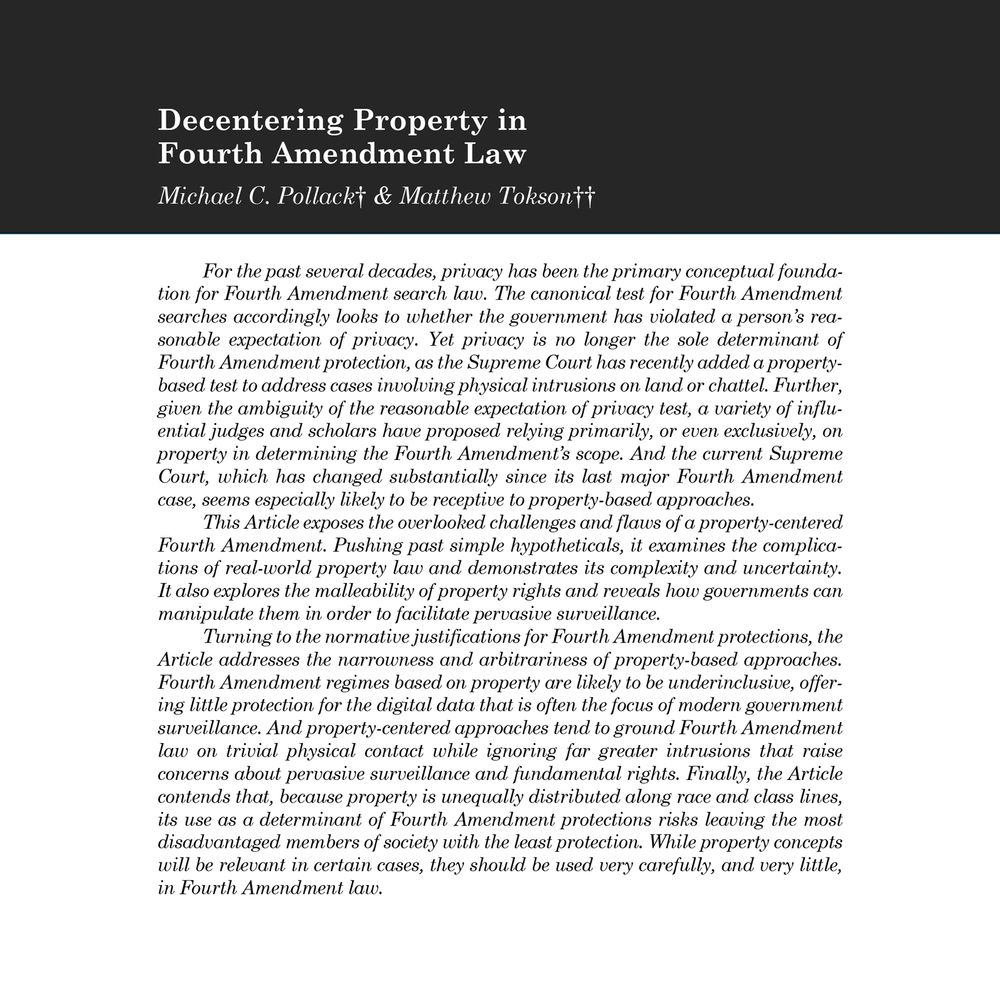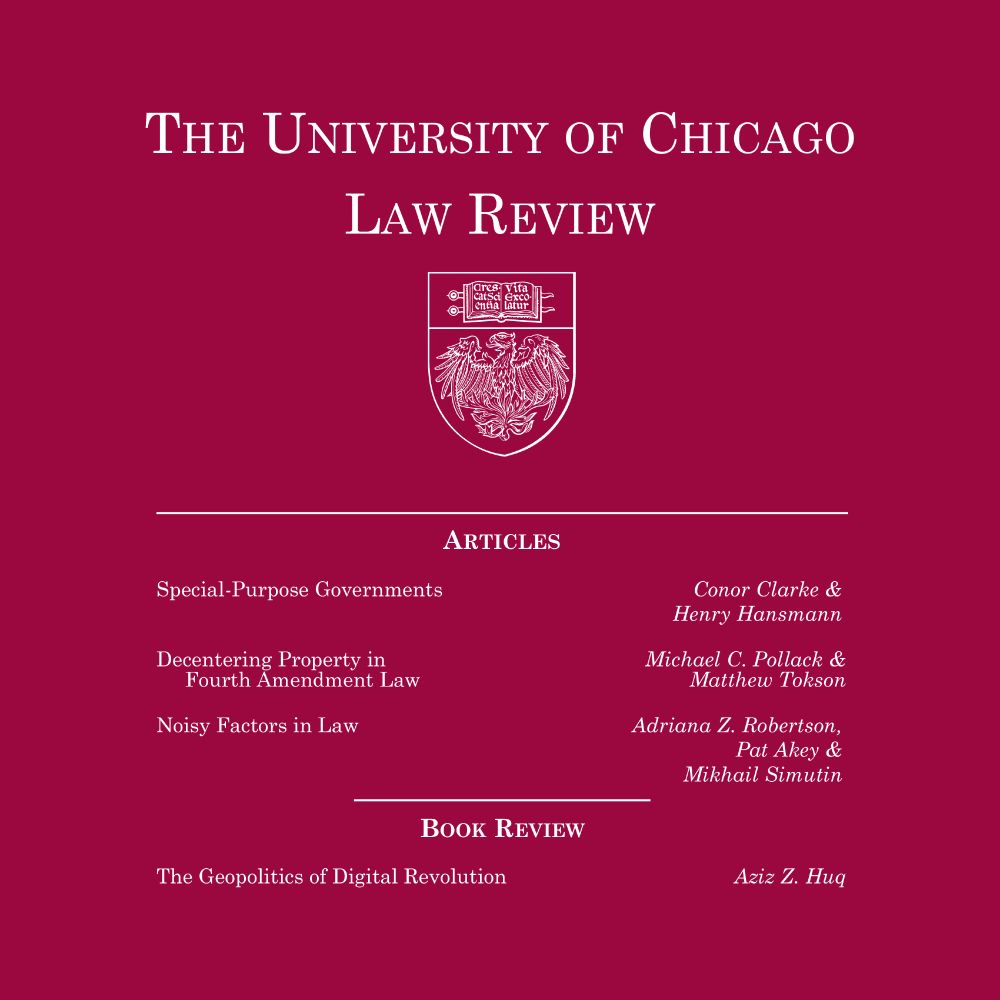UChicago Law Review
@uchilrev.bsky.social
270 followers
4 following
35 posts
The University of Chicago Law Review is a journal of legal scholarship edited by students of The University of Chicago Law School.
Posts
Media
Videos
Starter Packs
UChicago Law Review
@uchilrev.bsky.social
· Jul 16
UChicago Law Review
@uchilrev.bsky.social
· Apr 18
UChicago Law Review
@uchilrev.bsky.social
· Apr 18
UChicago Law Review
@uchilrev.bsky.social
· Apr 18




















